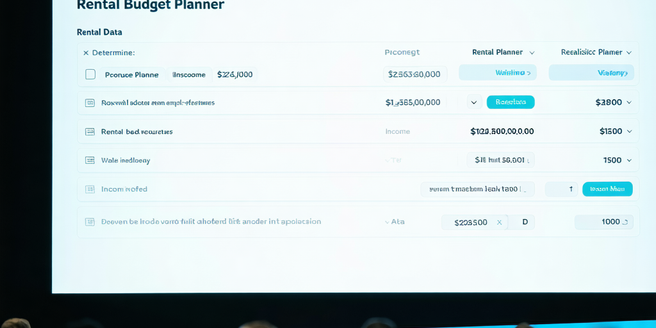Tricks For Finding Budget-friendly Rentals

Understanding the Rental Market Landscape
Understanding the rental market landscape is an essential step in finding budget-friendly rentals. The market is perpetually influenced by various economic factors, such as supply and demand, local development projects, and policy changes. Knowing whether a market is favoring renters or landlords can help you strategize your approach. For instance, a renter’s market, characterized by more supply than demand, might allow you to negotiate lower rents or get additional benefits like free utilities or a month of free rent. Being informed about the rental trends in your chosen area enables you to make decisions with confidence. Additionally, studying local market reports and recent rental trends can offer insights into what to expect and how much to budget. Knowledge of the landscape is power; the more informed you are, the better deals you can secure.
Setting a Realistic Budget and Sticking to It
Setting a realistic budget is an integral step in finding a suitable rental. Begin by evaluating your monthly income and determining how much you can comfortably allocate towards rent, considering the standard rule of thumb is approximately 30% of your monthly income. However, individual circumstances vary and it’s important to account for utilities, transport, and other amenities specific to your lifestyle and preferences. Once you establish this budget, it is critical to stick to it to avoid financial strain. Be honest about your financial limitations with potential landlords and don’t be afraid to walk away if the rent exceeds what you can afford. Establishing a budget and adhering to it ensures that your rental search is both effective and financially sustainable for the long term.
Exploring Various Neighborhood Options
Exploring various neighborhood options is a crucial part of the rental search process. Different neighborhoods offer different amenities, convenience levels, and community vibes. While some areas may have higher rent prices due to proximity to work, schools, or entertainment, others might be more affordable but require longer commutes. Considerations such as parks, grocery stores, public transport access, and safety should weigh into your decision. Visiting neighborhoods at different times of the day can provide a better sense of the environment and help uncover hidden gems. It might also be beneficial to speak with current residents to get a sense of what it is like to live there. Balancing your personal preferences with practical aspects will open up various affordable options and help in making an informed choice regarding where to settle.
Utilizing Online Platforms and Tools Effectively
Utilizing online platforms and tools effectively is a game-changer in the rental search process. Numerous websites and apps are designed to aggregate rental listings, enabling you to filter options according to budget, location, and other preferences. Platforms like Zillow, Apartments.com, and Craigslist offer wide databases of available properties. As you browse, set alerts for new listings to ensure you’re immediately notified of any potential deals. These platforms also often provide reviews and ratings from previous tenants, which can offer insights into the property and landlord. Additionally, tools like Google Maps allow you to explore the neighborhood virtually, evaluating proximity to essential services. Maximizing these resources can save you time and help discover budget-friendly rentals that meet your criteria.
Negotiating Smartly with Landlords and Agents
Negotiating smartly with landlords and agents is a key skill that can lead to securing a more affordable rental. Start by doing thorough research to understand average rental prices in your chosen area. This knowledge empowers you to negotiate from an informed standpoint. When approaching negotiations, present yourself as a responsible and long-term tenant, which landlords often prefer. You might also consider proposing a contract longer than the standard term in exchange for a lower monthly rate. Be open to discussing adjustments like maintenance responsibilities or including utilities in the rent. Remember to maintain a polite and professional demeanor throughout discussions. A successful negotiation not only reduces rental costs but can also strengthen the tenant-landlord relationship.